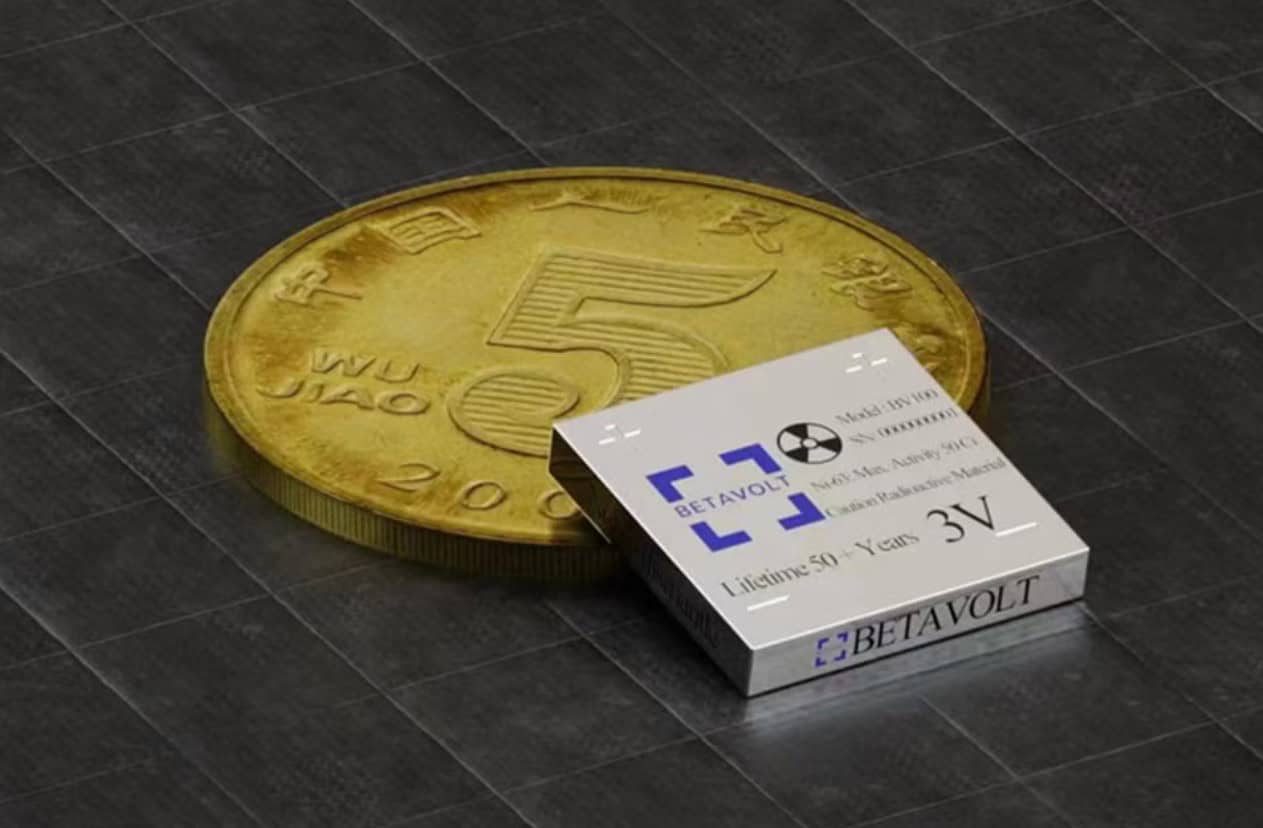A Chinese startup has unveiled a new battery that it claims can generate electricity for 50 years with the need for charging or maintenance.
Beijing-based Betavolt said its nuclear battery is the first in the world to realise the miniaturisation of atomic energy, placing 63 nuclear isotopes into a module smaller than a coin.
The company said the next-generation battery had already entered the pilot testing stage and will eventually be mass produced for commercial applications like phones and drones.
“Betavolt atomic energy batteries can meet the needs of long-lasting power supply in multiple scenarios, such as aerospace, AI equipment, medical equipment, microprocessors, advanced sensors, small drones and micro-robots,” the firm said in a press release.
“This new energy innovation will help China gain a leading edge in the new round of the AI technological revolution.”
The battery works by converting the energy released by decaying isotopes into electricity, through a process that was first explored in the 20th century.
Scientists in the Soviet Union and United States were able to develop the technology for use in spacecraft, underwater systems and remote scientific stations, however the thermonuclear batteries were both costly and bulky.
The quest to miniaturise and commercialise nuclear batteries was taken up under China’s 14th Five-Year Plan designed to strengthen the country’s economy between 2021 and 2025, while research institutions in the US and Europe are also working on their development.
Betavolt said its first nuclear battery can deliver 100 microwatts of power and a voltage of 3V, while measuring 15x15x5 cubic millimetres, however it plans to produce a battery with 1 watt of power by 2025.
Their small size means they could be used in series to produce more power, with the company imagining mobile phones that never need to be charged and drones that can fly forever. Its layered design also means it will not catch fire or explode in response to sudden force, Betavolt claims, while also being capable of working in temperatures ranging from -60C to 120C.
“The atomic energy battery developed by Betavolt is absolutely safe, has no external radiation, and is suitable for use in medical devices such as pacemakers, artificial hearts and cochleas in the human body,” the company said.
“Atomic energy batteries are environmentally friendly. After the decay period, the 63 isotopes turn into a stable isotope of copper, which is non-radioactive and does not pose any threat or pollution to the environment.

